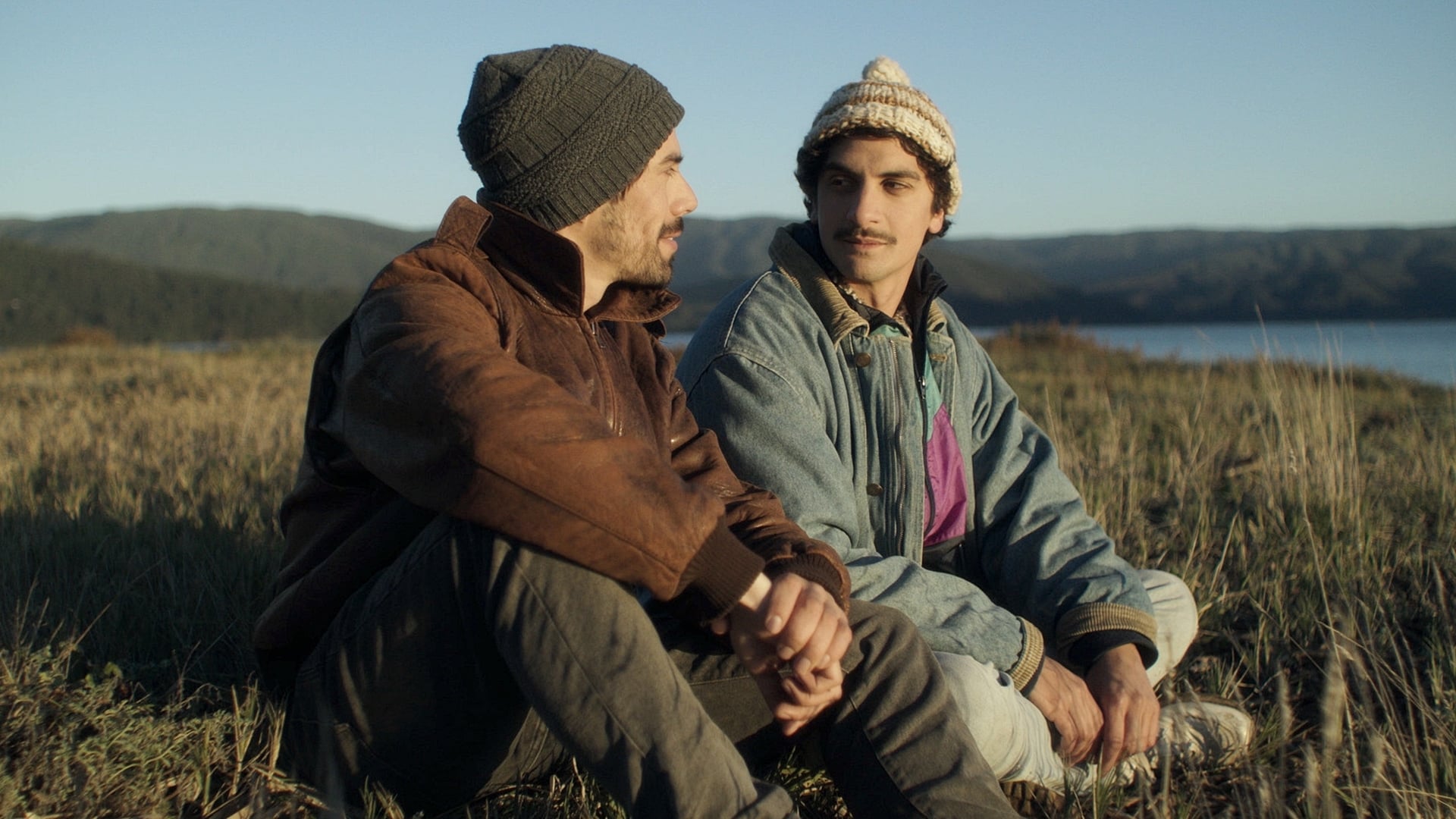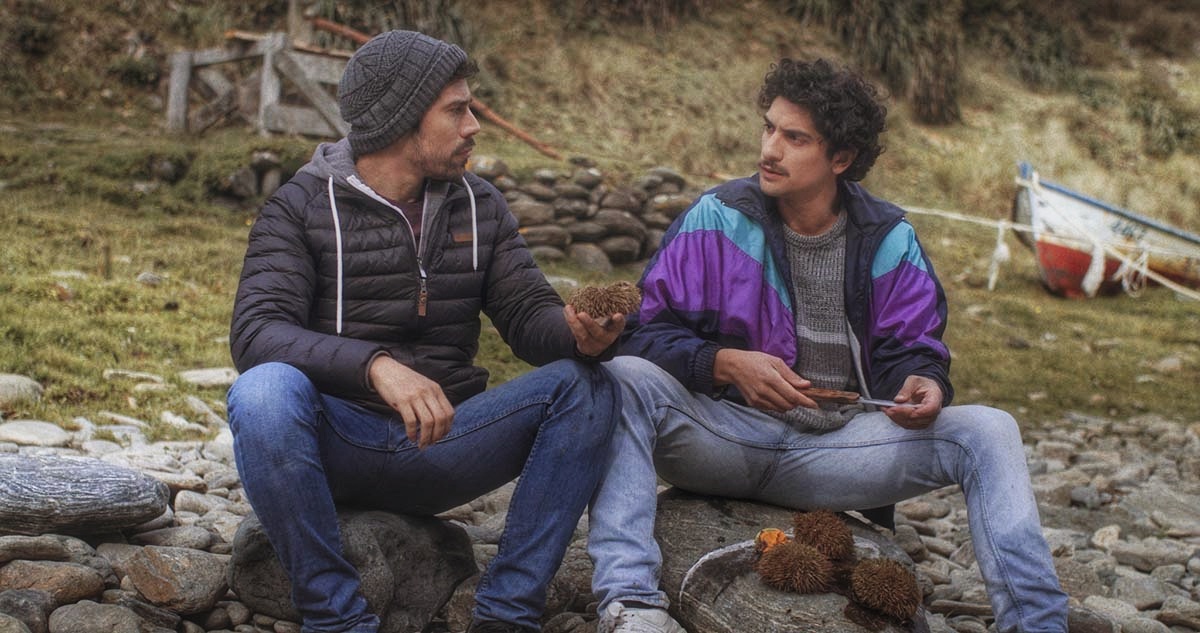
I love it when gay romances are not set in an urban setup. It is even more alluring if they are surrounded by sea or an equivalent water body. The lushness of landscapes, the mystery of the sea, and the conservation of the society around are bound to generate a certain level of intrigue by default. Therefore, when Omar Zúñiga Hidalgo’s Chilean romantic drama Los Fuertes (The Strong Ones) kicks off, I was curious about how different would the film be. Will it rely on the clichés of similar love stories? Is there a tragedy that awaits?
Set in a remote South Chilean town, Hidalgo’s film is a rather conventionally staged love story between two unalike men. Lucas (Samuel González), an architecture student, takes a trip to visit his sister. In a chance encounter, he comes across Antonio (Antonio Altamirano), a sailor and part-time actor for historical reenactments of the capture of Valdivia’s fortresses. In their first meeting when Antonio drops at Lucas’s place to drop off firewood, we sense sexual tension seething out of the frames. With the tantalizing manner in which the men and their gazes are captured, we get a hint of what lies ahead. The scene closes with a telling rear-view mirror shot through which Antonio stares at Lucas.
Lucas is instantly attracted and, in due course, Antonio reciprocates. If the former is an educated man from Santiago with complex family ties, the latter is nearly an orphan who appears to have lived all his life in the town. Staged through organic meet-cutes, the duo develops a steamy affair.

The Strong Ones also tells us that there is an expiry date to their closeness. Lucas is soon off to Montreal where he would study to become an architect with the help of a scholarship he obtained. The film poses questions galore on the momentariness of love besides touching upon topics such as family, class differences, and the impact of life’s uncertainties. We also get to see how the relationship affects the world around them. In Lucas’s case, his complicated familial relationships stand improved. Antonio visits the childhood home that he was evading for a while. There is also a rather unnecessary third wheel in the plot – a jealous lover who attacks Antonio.
Hidalgo’s film draws a connection between Lucas’s fascination for the historic fortresses and Antonio’s role in enacting a key role in a chapter from the Chilean freedom struggle. Some of the film’s lingering romantic moments are staged around these fortresses with their mysterious ambiance adding volumes to the actors’ chemistry.
The leads (González and Altamirano) make for an intensely erotic couple and it works greatly in favour of the film. If the lovemaking scenes appear life-like, the gentle, warmer moments are sprinkled with a spontaneous synergy that is often rare in same-gender love stories. The actors are individually terrific too – making the most of their contrasting characterizations.
Shot on DOP Nicolás Ibieta’s picture postcard-like frames, the film remains on the quieter side. The dialogues, however, in several instances do hit hard – often questioning us about societal class, relationships, and homophobia. The writer (Hidalgo) and the editors (Catalina Marín Duarte and Hidalgo) decidedly keep the pace on the slower side as they also let the environment sink in slowly as we enter Lucas and Antonio’s lives.
On a closing note, there isn’t anything that is unexplored in The Strong Ones as far as the genre is concerned. The Call Me By Your Name déjà vu is pretty obvious and we do see the climactic moment approaching from a distance. That said, the staging and the cinematography coupled with the leads’ smouldering chemistry make sure that we care for their well-being – making Hidalgo’s film a genuine charmer.
Rating: ★★★ 1/2
The film was screened at the 32nd Annual New York LGBTQ Film Festival.

